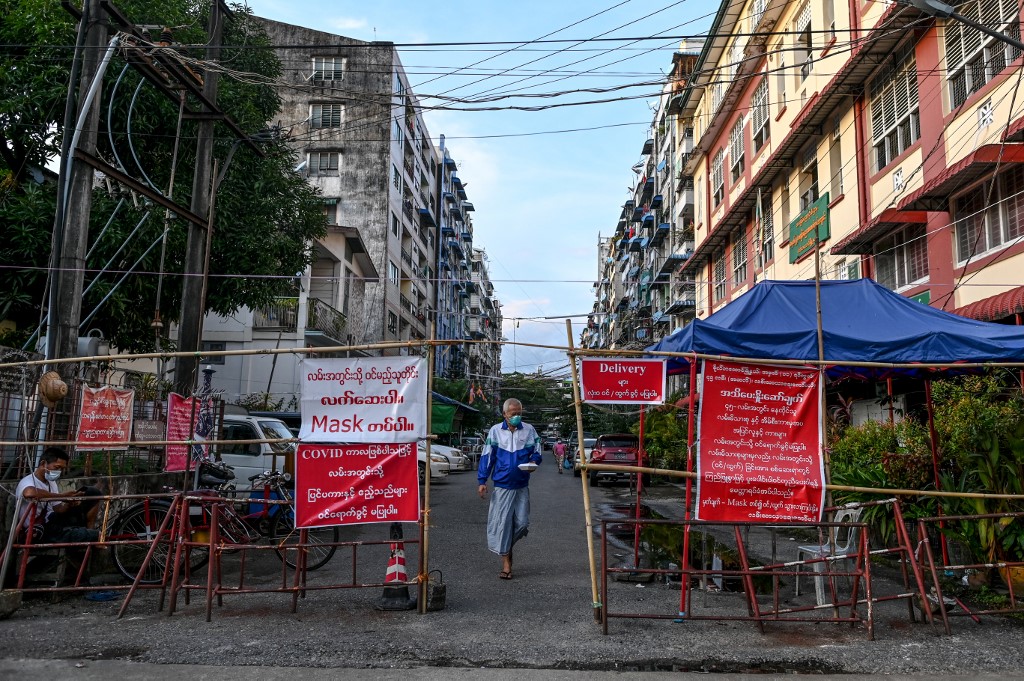
More than 500 people faced legal action countrywide in a week for violating Covid-19 restrictions, reported state media on Sunday (September 27).
Of the 525 cases from September 19 to 25, 350 people were not wearing masks in public, 149 were breaking curfew and 26 people in two brothels and one KTV were charged for breaching the rules, the report quoted Myanmar Police Force as saying.
State media did not detail the punishments but said that action was taken under the Prevention and Control of Communicable Diseases Law.
In the middle of May, when Covid-19 cases hovered below 200, more than a dozen people were fined 5,000 kyats under the law for not wearing a face mask outside in downtown Yangon.
Since then the Health and Sports Ministry has confirmed about 10,500 more cases and 226 deaths—most within the last month, returning Yangon to a state of lockdown last seen in April.
The urban poor who eke out a living on the streets are once again hit the hardest—and a fine for not wearing mask that they may not have even be able to afford would add to the hardship.
Myanmar also jailed between one more and a year more than 500 people from March to May for violating curfew, quarantine and physical distancing directives—a move that Human Rights Watch (HRW) argued was counterproductive for reducing threats to public health.
“Throwing hundreds behind bars in crowded, unhygienic prisons defeats the purpose of containing the spread of Covid-19,” said HRW deputy Asia director Phil Robertson in a statement on May 28.
In Yangon, trips outside are currently limited to one person per household for shopping or two people for medical treatment.
Most employees must work from home with the exception of supermarket and gas station staff along with workers in several other industries.
Businesses whose employees commute to their work were told yesterday to register online for a QR passcode. Employees can then use the passcode if they are stopped on their way to work.

